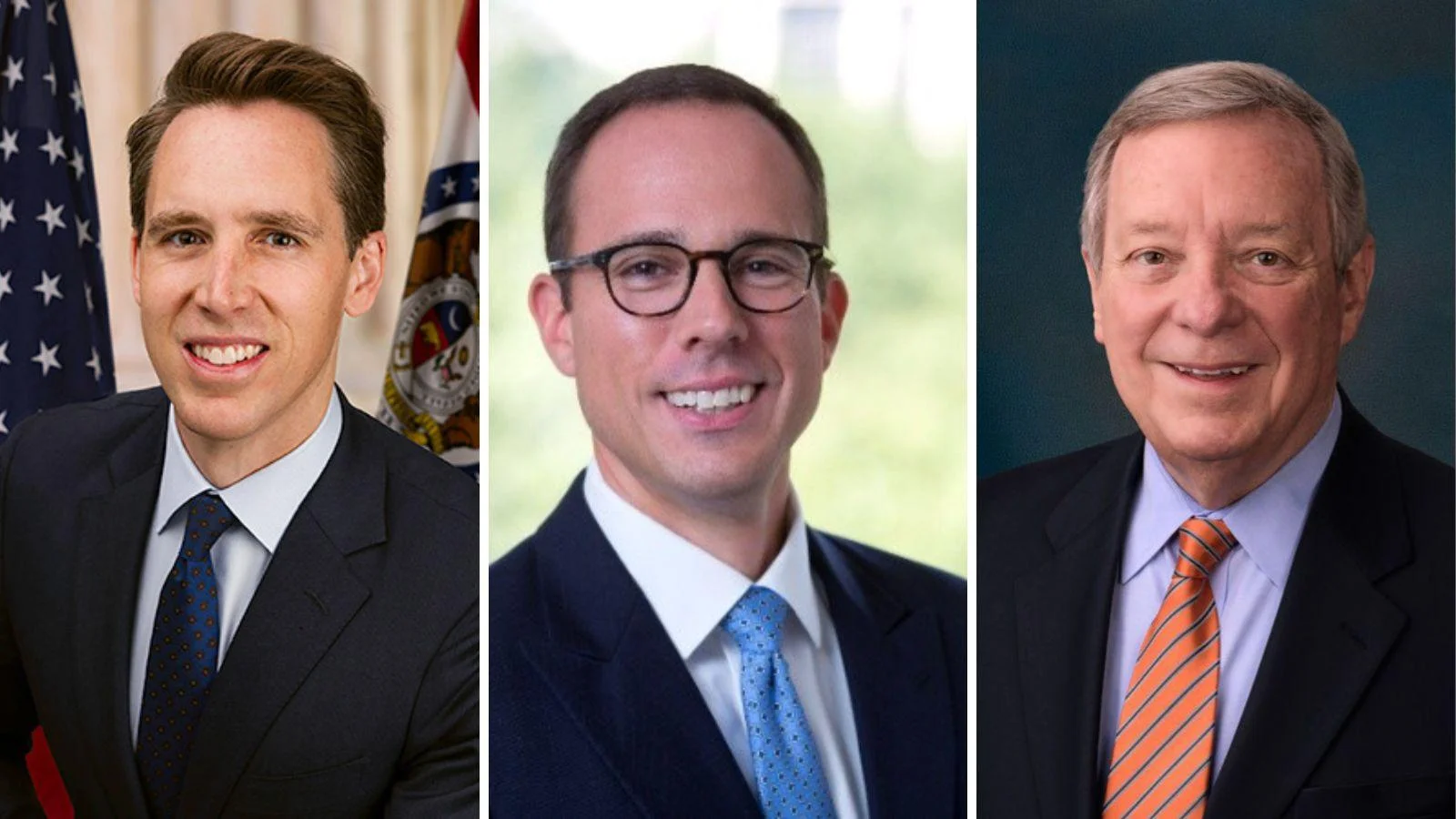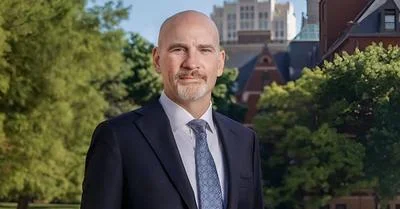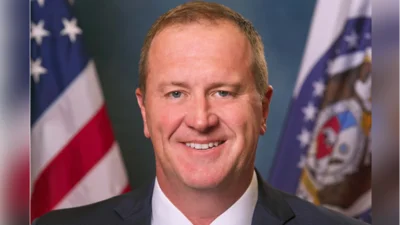U.S. Sen. Josh Hawley (R-Mo.), left, Nick Simpson, managing director of communications, Electronic Payments Coalition, center, and U.S. Sen. Dick Durbin (D-Ill.) | LinkedIn / Senate.gov
U.S. Sen. Josh Hawley (R-Mo.), left, Nick Simpson, managing director of communications, Electronic Payments Coalition, center, and U.S. Sen. Dick Durbin (D-Ill.) | LinkedIn / Senate.gov
A spokesman for the Electronic Payments Coalition (EPC) said the proposed “Credit Card Competition Act” (CCCA), co-sponsored by U.S. Sen. Josh Hawley (R-Mo.), would “force Americans’ credit cards to run on unknown, untested networks.”
“Interchange rates have remained virtually flat for nearly a decade and fraud for credit and debit card transactions has stayed very low compared to other forms of payment,” Nick Simpson, EPC's managing director of communications, told American Credit News. “Just as important, when fraud does rarely occur, consumers are made whole with zero-fault liability.”
“That is not guaranteed, it is in large part because currently all transactions are isolated to the card network’s systems and they have full line of site into those transactions to catch fraud,” said Simpson.
Interchange rates have remained under 2% for much of the past decade, according to the coalition’s “2024 Q3 Data Dashboard,” released Oct. 11, “debunking claims of rising processing costs,” said the coalition in a press release.
The CCCA, S. 1838, originally sponsored by U.S. Sens. Richard Durbin (D-Ill.) and Roger Marshall (R-Kans.), would require banks to offer merchants at least two network options, one of which cannot be Visa or Mastercard, for processing credit card transactions. Opponents to the bill argue that if given the choice, retailers would likely choose cheaper, less secure networks for processing transactions, thereby exposing consumers to increased securities and fraud risks.
“The Durbin-Marshall bill is a fundamental, monumental change in the way credit cards are processed in the United States,” said Simpson. “The proposed mandates would force Americans’ credit cards to run on unknown, untested networks.”
Glenn Grossman, the director of research at financial advisory firm Cornerstone Advisors, told Federal Newswire in April the bill could lead to an increase in credit card fraud.
“If the CCCA were to be approved the routing of credit card transactions would move from a ‘single pipe’ to ‘multiple pipes’ of data flowing from merchants to issuers,” said Grossman. “Today, card issuers depend on the networks to profile and identify fraud.”
“They see all the transactions on their network and have developed fraud detection capabilities that would not be possible in a fragmented structure the CCCA would create,” Grossman said.
He said that Visa has invested billions on fraud detection.
“The investment builds trust and in return consumers use their credit cards,” said Grossman. “Zero liability means something to consumers.”
“With the CCCA, it is possible that promise is gone.”
In a report released in July 2023, "The True Impact of Interchange Regulation: How Government Price Controls Increase Consumer Costs and Reduce Security," Grossman wrote that studies show 79% of consumers choose credit cards as a payment option because of their data security.
S. 1838 is currently pending in the U.S. Senate Committee on Banking, Housing, and Urban Affairs.





 Alerts Sign-up
Alerts Sign-up